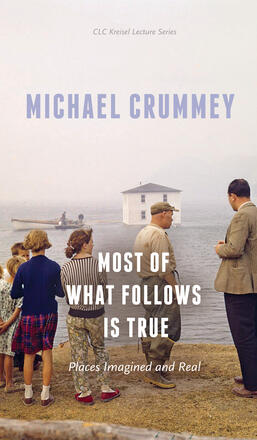
Description
"In all creative writing, the question of what is true and what is real are two very different considerations. Figuring out how to dance between them is a murky business."
In Most of What Follows Is True, Michael Crummey examines the complex relationship between fact and fiction, between the “real world” and the stories we tell to explain it. Drawing on his own experience appropriating historical characters to fictional ends, he brings forward important questions about how writers use history and real-life figures to animate fictional stories. Is there a limit to the liberties a writer can take? Is there a point at which a fictionalized history becomes a false history? What responsibilities do writers have to their readers, and to the historical and cultural materials they exploit as sources? Crummey offers thoughtful, witty views on the deep and timely conversation around appropriation.
Reviews
"[Crummey examines] Butch Cassidy and the Sundance Kid, Wayne Johnston’s The Colony of Unrequited Dreams, Lisa Moore’s Open and Alligator, Annie Proulx’s The Shipping News, Howard Norman’s The Bird Artist, and Crummey’s own River Thieves. These parallels bring into relief the question of whether there is something greater to be served by deviations from the factual... All creative writers appropriate the world to some extent—and might get things wrong—but sensitivity to an evocative, true, and aesthetically meaningful depiction is key." [Full article at https://canlit.ca/article/parallel-stories/]
- Tracy Whelan
"Fiction writers influence the way people see the world around them. And with that influence comes authorial responsibility.... Crummey offers a double proviso to the debate over cultural appropriation. He recommends impatience with the blinkered novelist who doesn’t deign to learn about the world he or she is describing. And perhaps more importantly, Crummey asks that a generous dose of tolerance, be given to that minority of one, the author, who is doing his or her best to tell us a story."
- Susan Swan